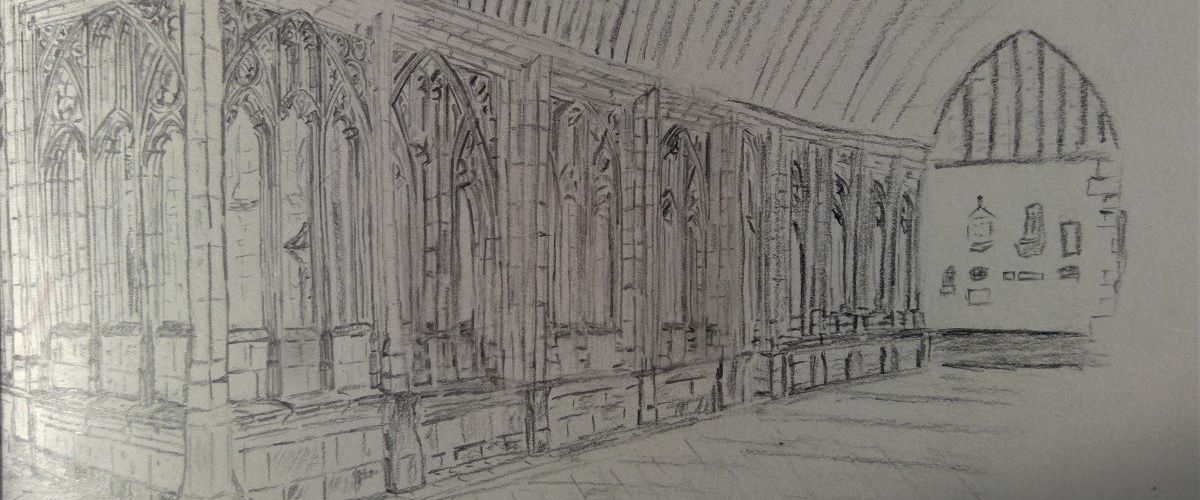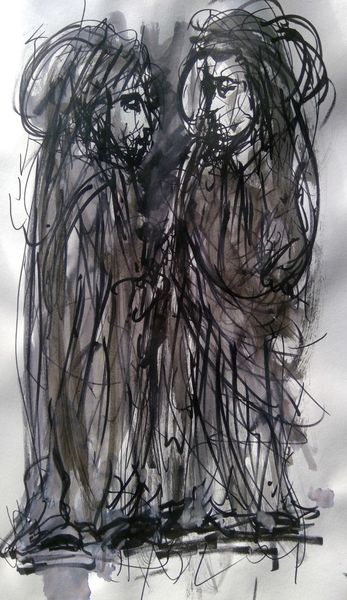

A Green Thought for the Week
Annihilating all that’s made
To a green thought in a green shade
Andrew Marvell, The Garden
I hope we have all had green thoughts in green shades recently. Is there any greater solace than reclining in the shade of a tree and letting the mind wander where it will? Marvell finds in the garden a delectable retreat from the world of competitive egos: ‘How vainly men themselves amaze’, his poem begins, ‘To win the palm, the oak, or bays’. In other words, how much time and energy we waste in the futile pursuit of worldly prizes. The poet finds in the garden Quiet and Innocence, a setting where the mind ‘Withdraws into its happiness’. In the splendid recent weather, many of us have found similar moments of calm, even in the knowledge of ongoing disaster, listening to the birdsong and breeze, oddly vivid against the near-silent roads.
So nature has been one precious retreat. Another, for me, has been music. On our keyboard at home I have been playing the simpler pieces from Bartok’s Mikrokosmos, preludes by Bach and the sequence Musica Callada (Silent Music) by a composer who has fascinated me for many years, the Catalan Federico Mompou. His ‘silent music’ brings to mind T S Eliot’s line ‘Music heard so deeply That it is not heard at all’. Well, I say I play these pieces, but ‘playing’ is stretching it a bit. I drift and dabble, speeding up and slowing down, lingering on a phrase, playing a single passage and moving outwards. It’s an exploration more than a performance. But whatever it is, the exercise is a calming, absorbing occupation, all the more so since I know there is no test at the end of it, no laurel wreath to be pursued. It is not an activity leading to a higher goal. This, the doing of it now, finding value and meaning in a handful of notes, is the whole point of it. The mind withdraws into its happiness.
As a literature teacher I should probably give an account of my reading, but there hasn’t been that much of it. Proust has stayed on the shelf. My mind has recoiled from the complexities of long books but I have found myself attentive to shorter forms, like essays and poetry. At my elbow is Wai-Lim Yip’s anthology Chinese Poetry, which prints the original characters next to literal translations. I have no Chinese, but love to let my mind rest on a line like ‘Birds scatter; last flowers fall’ or ‘Weeping reaches straight to the skies beyond clouds’ – thoughts that go off like depth charges deep in the mind’s ocean. Poetry books lie scattered about the house, to be picked up and browsed in for a few moments. I don’t analyse or consciously interpret them, just listen, like eavesdropping on a conversation at the next table.
But my favourite retreat over the last few weeks has been in making images, principally in the activities of photography and drawing. Both occupations make me pay more attention to the world and, I think, enhance each other. With the camera, I like taking still life pictures of simple objects, close-ups of garden flowers and shots of the dappled chalky lanes of our beautiful countryside. And my sketchbook bulges with drawings - some done slowly, others quickly, playing with different methods and media. The activity of drawing is an addictive process of seeing, registering, mark-making, of knowing and not knowing simultaneously. A drawing is a brief moment of closure, but it is never really finished, as it always opens up new questions which lead you to the next one. I believe it was the artist Maggi Hambling who said ‘Every drawing should be an experiment’. I love that challenge of not relying on familiar formulae, of moving to new, untested ground. As with music, the richness of the experience lies in the process more than the product, and the fact that there is no exam, no laurel wreath, again allows one to relish that feeling of process, of being in the moment.

Malcolm Hebron, The Visitation, ink drawing (after a sculpture at Chatres)
These various occupations have made me think about the vital place of creativity and imaginative expression in our lives. Outside the garden, they can be pushed aside as we vainly amaze ourselves in other pursuits, as we move from otium to nec-otium, business, busy-ness. Yet the experience of imagination, of experiment, risk-taking, exploration – of becoming conscious of ourselves as creative agents rather than passive drones – should surely be part of the pulse of ordinary living. In the garden or out of it, some space for the imagining mind needs to be found if we are to lead a full and healthy human life.
Green thoughts from a green shade.
Or, as Wang Pin-Chih puts it, in Orchid Pavilion:
Beaming flowers in the thicket
Sporting fishes in full stream.
At the bank, cast a line –
Fully content –fish or no fish.

 Head back to stories
Head back to stories